Mobile’s Austal USA awarded contract to build two more LCS’s for US Navy
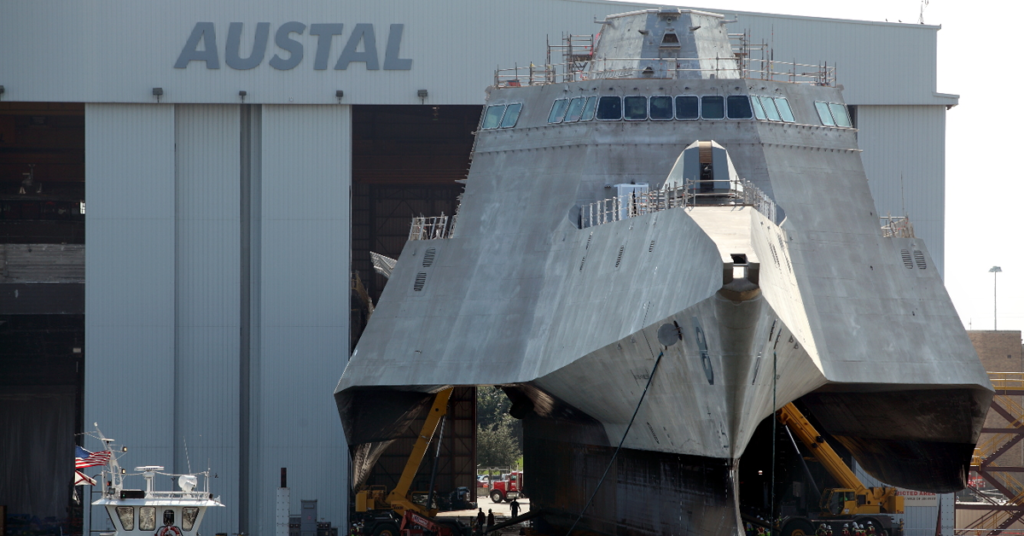
Austal USA in Mobile, Ala., was awarded a contract modification by the U.S. Navy to build two additional Independence-variant Littoral Combat Ships (LCS), LCS 32 and 34, its sixteenth and seventeenth ships in the class. The specific value of each contract is under the congressional cost cap of $584 million per ship. The contracts were announced Tuesday by the Department of Defense. “To be awarded these Independence-variant contracts in such a highly competitive environment is a great honor,” said Austal USA President Craig Perciavalle. “This is a testament to the hard work and commitment of our talented employees and dedicated supplier network, and further evidence of the important role Austal plays in building the Navy’s 355-ship fleet.” Alabama 1st District U.S. Rep. Bradley Byrne, who represents Mobile in Congress, called the contract award “another indication of the high quality work being performed” in Mobile. “The fact that Austal received two of the three contracts from Fiscal Year 2018 for Littoral Combat Ships is yet another indication of the high quality work being performed at our shipyard in Mobile,” Byrne said in a statement. “This marks the third straight year that Austal has received two of the three contracts – a testament to the fact we are delivering capable ships on time and on budget. Congratulations to the almost 4,000 men and women who work at the shipyard and help equip the Navy with warships.” Austal USA is scheduled to begin construction on the ships in 2019. “This amazing team effort highlights the value and importance of the American industrial base, and these awards will keep Austal busy building ships into 2023” said Perciavalle. Austal delivered the future USS Charleston (LCS 18) to the Navy last month and is scheduled to deliver USNS Burlington (EPF 10) before the end of the year. With eight LCS and nine EPFs already delivered, Austal-built ships are impacting worldwide operations. “It’s exciting to hear the positive feedback from the fleet commanders on how well our ships match their mission requirements as they operate globally,” added Perciavalle. “We will continue to build these ships in a safe and timely manner with the quality and craftsmanship that Austal has come to be known for.”
Jim Zeigler asks DHS to cancel plan to house illegal detainees in Baldwin County
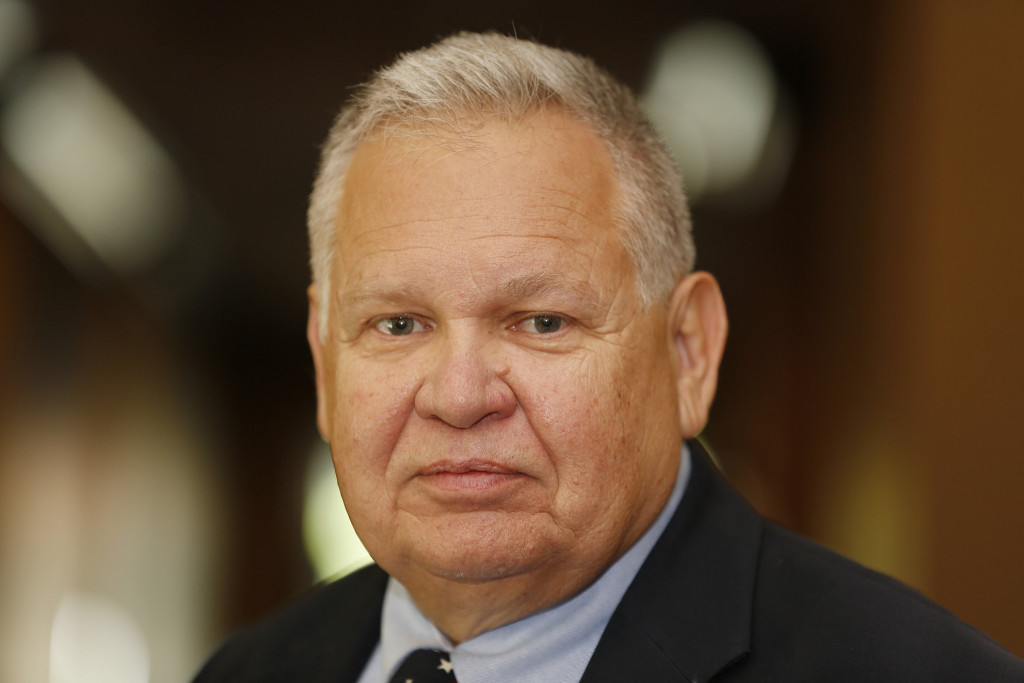
Time reported on Friday it had obtained an internal document that details the U.S. Navy’s plans to construct “temporary and austere” tent cities to house 25,000 illegal immigrants in the Yellowhammer State at two abandoned airfields — Navy Outlying Field Wolf in Orange Beach and Navy Outlying Field Silverhill — and Alabama State Auditor Jim Zeigler is trying to stop them. Zeigler, a resident of nearby Mobile County, sent a formal request to the U.S. Department of Homeland Security (DHS)Secretary Kirstjen Nielsen asking her to cancel the plans to construct two tent cities in Baldwin County. Zeigler says the plan is “terribly flawed.” He cited four problems with the plan: The area is a hurricane zone. “This area is a hurricane zone,” said Zeigler. “A tent city in a hurricane zone is dangerous for the detainees and the staff. It would be difficult and costly to quickly evacuate the detainees when a hurricane heads our way, which happens frequently. This site is totally inappropriate for the intended purpose.” High temps and humidity. Zeigler continued, “The area has high temperatures and humidity. There will be no air conditioning in a tent city. Other geographical areas are available without the heat and humidity. The site selection authority needs to be fired.” It’s near the state’s booming tourist industry. “The area is in or near Alabama’s booming tourist industry and highest revenue-generating area,” Zeigler explained. “Tourism and revenues would be adversely affected by these sites. Optional areas are available that are isolated and are not vital to tourism and revenue generation.” Security. “Security is a continuous problem with a sprawling tent city in a residential area,” Zeigler added. “Escapees can commit crimes in the nearby neighborhoods. Isolated areas are available that would not have this problem.”
UA professor Dr. Andrew Lemmon receives $500K for US Navy research

A University of Alabama professor has received half a million dollars from a U.S. Navy award in hopes of advancing the future of Naval ships. Dr. Andrew Lemmon, UA assistant professor of electrical and computer engineering, is one of 31 recipients of the prestigious 2018 Young Investigator Program (YIP) from the Office of Naval Research (ONR). Awards were given to those whose research holds strong promise across a wide range of naval-relevant science and technology areas. “To meet the demand signal from the 2018 National Defense Strategy, we must attract the best and brightest minds to work on naval warfighting challenges. The Young Investigator Program does just that, and I’m honored to announce the recipients for 2018,” said Chief of Naval Research Rear Adm. David Hahn. “Since 1985, this program has attracted outstanding scientists and engineers from across academia to support our Navy and Marine Corps, and as we return to an era of great power competition, that is more important than ever before.” The YIP is a highly competitive process, rewarding the achievements made by young faculty members. This year’s candidates were selected amongst more than 340 highly qualified applicants based on past performance, technical merit, potential for scientific breakthrough and long-term university commitment. All are college and university faculty who have obtained tenure-track positions within the past five years. Lemmon will receive the $500,000 over the course of three years. “It’s obviously a huge honor, and I feel very fortunate to have received this award,” Lemmon said. Introduced in 1985, the ONR YIP is one of the nation’s oldest and most selective science and technology basic research programs. Its purpose is to fund early-career academic researchers-called investigators-whose scientific pursuits show outstanding promise for supporting the Department of Defense, while also promoting their professional development. Lemmon is the first faculty member at UA to receive the YIP award since its inception. “We are very proud of Dr. Lemmon for receiving an ONR Young Investigator Award,” said Dr. Charles Karr, dean of UA’s College of Engineering. “This is a very prestigious award, but one that is well deserved. We are excited about the work Andy does for the Navy.” According to UA, Lemmon’s research in power electronics is expected to contribute to closing known technology gaps in the Navy’s current 30-year ship building plan. This long-term plan includes a shift toward electric propulsion for some types of U.S. Navy ships, which requires moving to a new power architecture called the Integrated Power System. IPS will enable ship propulsion and other loads to be powered from a common system in order to reduce the total amount of power required. This system has been in development for several years, and it is where Lemmon’s research ties in. His research team is working with a new generation of high voltage semiconductors made from silicon carbide, or SiC, which is a key enabling technology for future large-scale IPS implementations. The goal of Lemmon’s YIP program is to help the Navy understand and resolve the challenge of electromagnetic interference, or EMI, in systems designed with SiC. “This is a major challenge, and we can’t yet solve it completely, but we are discovering methods to drastically reduce the amount of electromagnetic interference that is emitted by these devices,” Lemmon explained.
Northrup Grumman-Huntsville awarded contract to modules for Navy ships
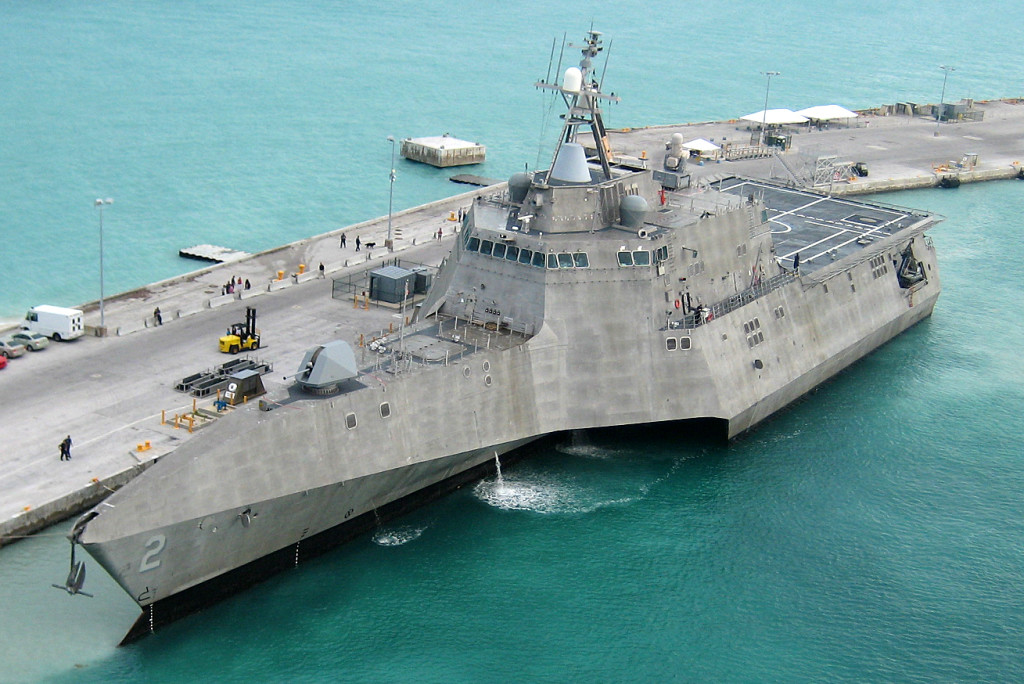
Northrop Grumman has been award a contract from the U.S. Navy for gun mission modules on Littoral Combat Ships (LCS). The Department of Defense (DoD) announced the deal Monday. According to the DoD, 91% of the work will be performed in Huntsville, Ala. and is expected to be completed by December 2019. The deal is valued at more than $7,420,308 million under the terms of a firm-fixed-price contract, a modification to a previous award. “Exciting news! Northrup Grumman in Huntsville was just awarded a contract to build gun mission modules for Littoral Combat Ships. Proud to see the whole state of Alabama working together to build these capable and efficient naval ships,” said Alabama 1st District U.S. Rep. Bradley Byrne.
Austal USA lands US Navy contract to build additional ship in Mobile
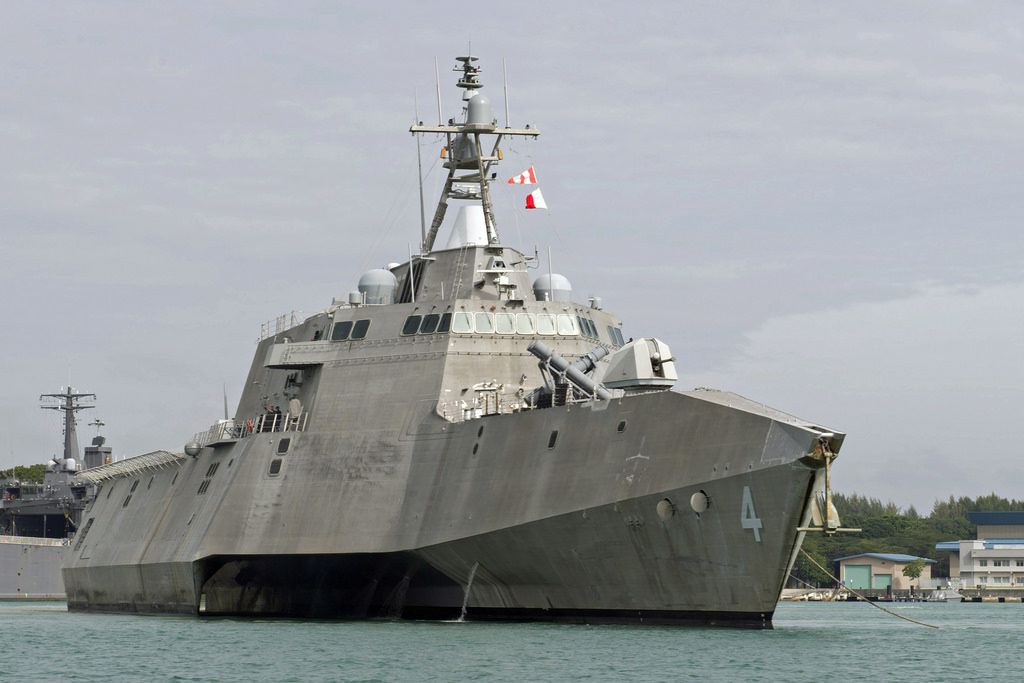
Austal USA has been awarded a construction contract to build an additional Independence-variant Littoral Combat Ship, its fifteenth ship in the class, for the U.S. Navy. The contract is an economic boon for the Yellowhammer State as Austal USA will build the ship at its Mobile, Ala. headquarters and manufacturing facility, which employs 4,000 people and includes a supplier network of over 2,200 businesses across 43 states. “When Alabama’s businesses succeed, Alabamians succeed,” said Gov. Kay Ivey of the newly awarded contract. “Austal USA is a 21st-Century, technology-driven, employer which provides good wages and good opportunities for its employees. Austal is critical to our state’s high-tech military and aerospace manufacturing sector. Ivey continued, “By adding to its ship order, the U.S. Navy is signaling its confidence in Austal’s products and the employees who build it. Alabama has a skilled workforce that is known for producing high-quality goods. I look forward to more announcements like this one from Austral, as well as other companies that do business in Alabama, because of our trained workforce and our positive business environment.” Austal would not reveal the value of the contract, but confirmed the value is under the congressional cost cap of $584 million per ship. “We’re honored to be awarded this contract in such a highly competitive environment,” said Austal USA President Craig Perciavalle. “This further supports the Navy’s recognition of Austal as a key component in building their 355-ship fleet, which is a testament to the hard work and commitment of our talented employees and dedicated supplier network.” The littoral combat ship has been identified as a key component to the Navy’s ability to gain sea control through distributed lethality. Austal is the fifth largest shipbuilder in the United States
US Navy fires 2 commanders in connection with ship collisions
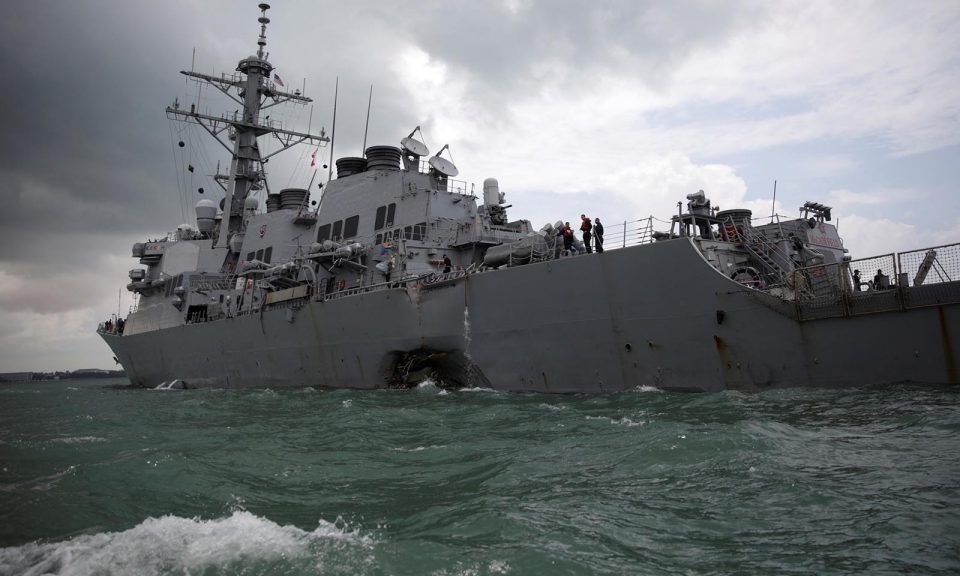
The U.S. Navy has fired two senior commanders in the Pacific region in connection with recent deadly collisions of Navy ships, as part of a sweeping purge of leadership in the Japan-based fleet. The announcement comes a day before the top U.S. Navy officer and the Navy secretary are scheduled to go to Capitol Hill for a hearing on the ship crashes. Vice Adm. Phil Sawyer, commander of the Navy’s Japan-based 7th Fleet, fired Rear Adm. Charles Williams and Capt. Jeffrey Bennett, citing a loss of confidence in their ability to command. Williams was the commander of Task Force 70, which includes the aircraft carriers, destroyers and cruisers in the 7th Fleet, and Bennett was commander of the destroyer squadron. Last month, Vice Adm. Joseph Aucoin, who previously led 7th Fleet, was relieved of duty. The USS John S. McCain and an oil tanker collided in Southeast Asia last month, leaving 10 U.S. sailors dead and five injured. And seven sailors died in June when the USS Fitzgerald and a container ship collided in waters off Japan. The latest dismissals bring the number of fired senior commanders to six, including the top three officers of the Fitzgerald. Navy Capt. Charlie Brown said Monday that 7th Fleet ships have completed the one-day operational pause ordered for the entire Navy to make sure crews were conducting safe operations. And Pacific Fleet is in the process of carrying out a ship-by-ship review of its vessels, looking at navigation, mechanical systems, bridge resource management and training. Rear Adm. Marc Dalton is now commander Task Force 70, and Capt. Jonathan Duffy, who was deputy commander of the destroyer squadron, took over as commander. Republished with permission from the Associated Press.
Bradley Byrne: Preventing naval tragedies

On June 17th, the USS Fitzgerald, a guided missile destroyer with the United States Navy, collided with a merchant vessel southwest of Tokyo, Japan. The collision resulted in the death of seven Navy sailors and an additional three crewmembers were injured. Then, on August 21st, the USS John S. McCain, also a Navy destroyer, collided with a merchant vessel in the Straits of Malacca, near Singapore. This time, ten crewmembers were killed and five others injured. The death of a single U.S. service member is one death too many, but losing seventeen Navy sailors in the course of a few months is a real tragedy. The House Armed Services Committee recently convened a hearing to examine these incidents. As a member of the Committee, I was especially interested in what needed to change to prevent events like this from occurring in the future. In addition to the two tragic incidents, there were also recent incidents where the USS Antietam ran aground near Japan and the USS Lake Champlain collided with a fishing boat. Neither of these resulted in any injuries, but they did cause damage to the ships. Already, the commander of the U.S. Seventh Fleet, where all these incidents occurred, has been relieved of his command and the commanding officers of the USS Fitzgerald and the USS Antietam were also removed. During the hearing, we heard a number of different ideas and concerns from the Navy leadership who testified. Notably, the Navy made clear that investigations into these incidents are still ongoing, but I think a number of conclusions can be drawn. First, we must continue to evaluate and improve our Navy’s training programs. Today’s ships have very complex technology that requires extensive training and retraining to keep the crew up-to-speed. We also need to make sure we have enough sailors to prevent exhaustion and fatigue from adding unnecessary risk. Studies indicate that today’s sailors are working longer hours than their predecessors. Our ships require full manning to perform their missions throughout the globe. The size of the fleet is also an issue. More ships mean shorter and less frequent deployments per ship, which lessens the wear and tear on the ship and leaves more time for maintenance and training. We have 100 ships throughout the world but with a fleet that has shrunk over 40% since the late 1980s. All of these areas tie back to a major underlying issue: lack of adequate funding and funding certainty for our national defense. These are both Congressional responsibilities and requirements. We must give the Navy and the entire military more budget certainty. The Navy needs to know how much money they will be receiving each year in order to effectively plan their programs and procure new ships. I was pleased when the House passed a strong military funding bill earlier this year. Specific to these concerns, the bill called for bringing on more military personnel and buying eleven more Navy ships. Unfortunately, the Senate has so far failed to pass the military funding bill. This resulted in Congress last week passing a short-term Continuing Resolution that simply holds funding levels in place. I voted against the short-term Continuing Resolution because of the negative impact it will have on our military. It will delay maintenance periods for ships we need to send back out to the fleet and delay the process of procuring new ships, to name a few crippling effects. Of course we need the Navy to do a better job of training and operating their vessels, but Congress has to also do our part to ensure adequate funding and budget certainty. We cannot continue to underfund our military and put our sailors and service members at risk. • • • Bradley Byrne is a member of U.S. Congress representing Alabama’s 1st Congressional District.
Bradley Byrne: Who will build our 355 ship Navy?
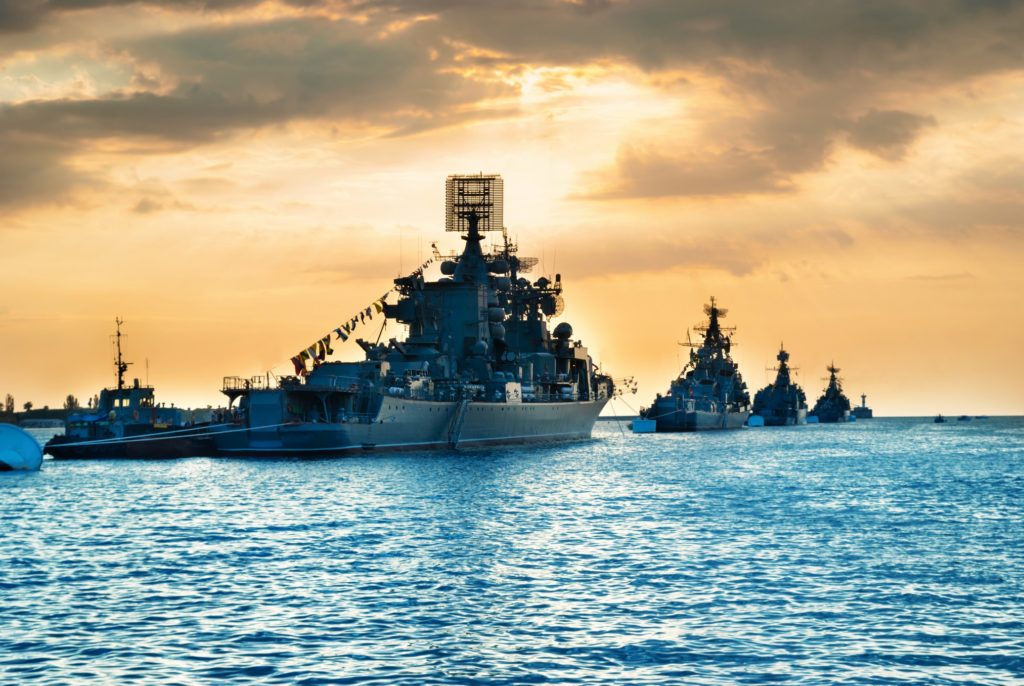
America has the most powerful Navy the world has ever seen. For centuries, our sailors have provided peace and stability around the globe. With over eighty percent of the world’s population living within sixty miles of the sea and ninety percent of world trade moving by sea, a strong and capable U.S. Navy is critical to a bountiful economy and the wellbeing of humanity. Unfortunately, due to defense cuts and a shrinking fleet size, competitors are challenging our naval superiority. This is why it is critically important we support the Navy’s proposed 355 ship fleet and continue to invest in the latest technology. In order to grow our Navy and make sure we continue to be an example of strength for the rest of the world, it is vital that we have a robust shipbuilding industry here at home. Shipbuilding and ship repair have been an important part of our national economy since our country’s founding. Nationally, the industry accounts for roughly 400,000 jobs, provides $25.1 billion in labor income, and contributes over $37.3 billion to the GDP. Shipbuilding is about both national security and a strong economy. Unfortunately, we cannot build up to the 355 ship fleet of tomorrow without a skilled and capable workforce. Our nation continues to experience a severe gap in skilled workers, and the shipbuilding industry is not immune to this problem. This is one example why career and technical education (CTE) programs are so important. They provide American workers with the development and training needed to build the ships that are necessary in order to maintain our naval superiority. Thousands of workers in the United States look to technical education programs as a path forward in their careers. Whether it is a sudden and unexpected career change or a well-planned out career for a high school student, CTE programs offer opportunity and growth for a wide range of Americans. Aaron, one of my constituents in Southwest Alabama, is a great example of a CTE success story. Ten years ago, he started out as a plumber, but after going through a CTE program, he now supervises pipe and machinery for an entire shipyard in coastal Alabama. His supervisor cites him as one of their best leaders. His life was forever changed thanks to CTE, and he is now helping build our nation’s warships. As the former chancellor of the Alabama’s community college system, I have seen these CTE programs firsthand and they work like magic. Encouraging our nation’s workforce to specialize in a valuable trade like shipbuilding and repair improves their lives and also provides tremendous benefits to both our economy and our national security. Earlier this year, the House passed H.R. 2353, the Strengthening Career and Technical Education for the 21st Century Act, on a huge bipartisan vote. Our bipartisan bill updates the Carl D. Perkins Career and Technical Education Act by empowering state and local leaders, improving alignment with in-demand job areas, and increasing transparency and accountability. These reforms will make our CTE programs stronger, which in turn will benefit the overall U.S. economy. The bill is now under consideration in the Senate, and I hope they will act swiftly on this bipartisan bill to help train the workforce of tomorrow, including our nation’s shipbuilders. As President Theodore Roosevelt said in 1902, “A good Navy is not a provocation to war. It is the surest guaranty of peace.” As we work to build up our Navy, let us not lose sight of the importance of maintaining and supporting a skilled workforce to build the 355 ship fleet of tomorrow. • • • Bradley Byrne is a member of U.S. Congress representing Alabama’s 1st Congressional District.
In reversal, US Navy won’t scrap traditional job titles
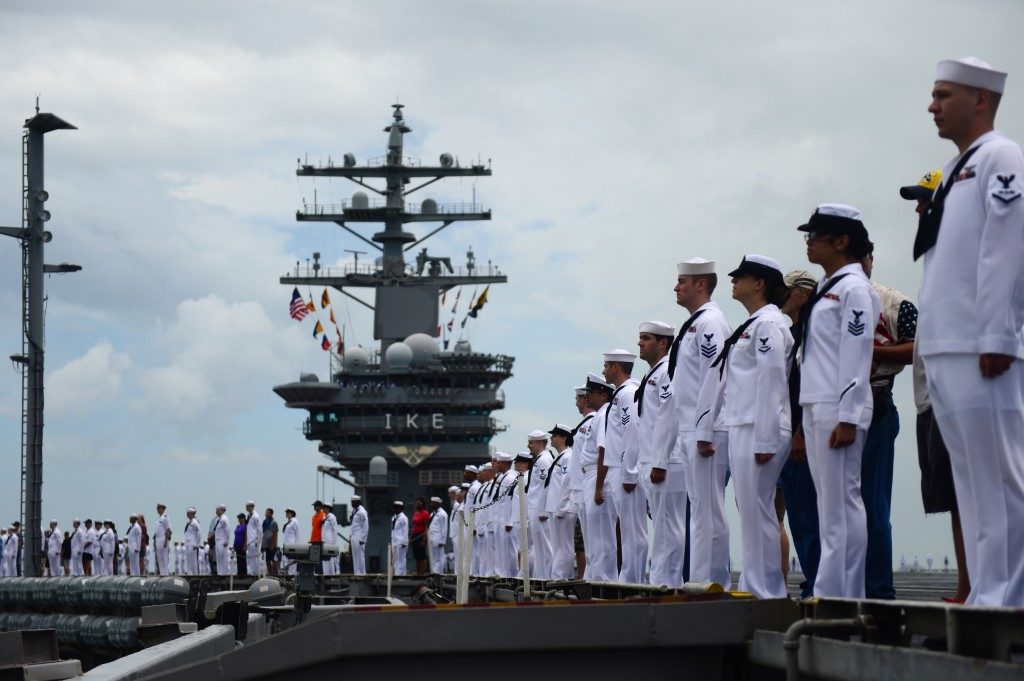
In the Navy, a corpsman will still be a corpsman. Navy leaders are dumping a plan announced in September to eliminate dozens of enlisted sailors’ job titles, some ending in “man.” They said sailors’ anger over the changes had become a distraction and they will look for other ways to modernize the system. “The bottom line is, we’re going to preserve all the good, we’re going to throw all the distractions overboard and we’re going to move on, stay on course,” Navy Adm. John Richardson, chief of naval operations, told sailors gathered in the Pentagon on Wednesday. “You showed us the way forward. … Thanks for teaching us that lesson.” The decision to drop long-held traditional titles and instead refer to sailors by their rank had signaled a sharp cultural shift for the Navy. Efforts to change titles that ended in “man” were in response to the Pentagon decision to open all combat jobs to women. In a memo, Richardson said that modernizing the job ratings or titles was designed to give sailors more flexibility in training and assignments. Switching to names more understandable to the civilian world, Navy leaders argued, would make it easier to get jobs once sailors left the service. But after hearing angry reactions from thousands of sailors, Richardson said Navy leaders believe they can find a way to provide better job flexibility without dropping the titles. The memo was released Wednesday morning, and Richardson and Master Chief Petty Officer Steven Giordano, the top Navy enlisted officer, announced it in the Pentagon. Giordano said the focus on titles had become a distraction from “our missions, our operations, our warfighting efforts.” Richardson outlined what he called a “course correction” in the memo, saying the Navy will continue to review ways to update the names. “Modernizing our industrial-age personnel system in order to provide sailors choice and flexibility still remains a priority for us,” he said. “We will need to tackle the issue of managing rating names.” The Navy called for a review of the titles in January, shortly after the Pentagon ordered that all combat jobs would now be open to women. The idea was to eliminate titles such as “chief yeoman,” ”corpsman” or “boatswain’s mate” – titles steeped in tradition but difficult for the public to translate or understand. Under the plan, sailors would have been known by their ranks, such as petty officer or chief. And job titles would be made more gender-neutral. Navy Secretary Ray Mabus, who pushed the plan, said at the time that he wanted titles to better convey the job a sailor is doing. For example, few civilians know what a hospital corpsman does, Mabus said in June. A corpsman could be called a medic or an emergency medical technician, much like “messman” was previously changed to culinary specialist, he added. Sailors opposing the decision launched a White House petition and gained some support from Capitol Hill. They said that while they liked the idea of more flexibility, they wanted to hold onto their traditional titles. Republished with permission of the Associated Press.
U.S. Navy’s next Littoral Combat Ship to be named USS Mobile
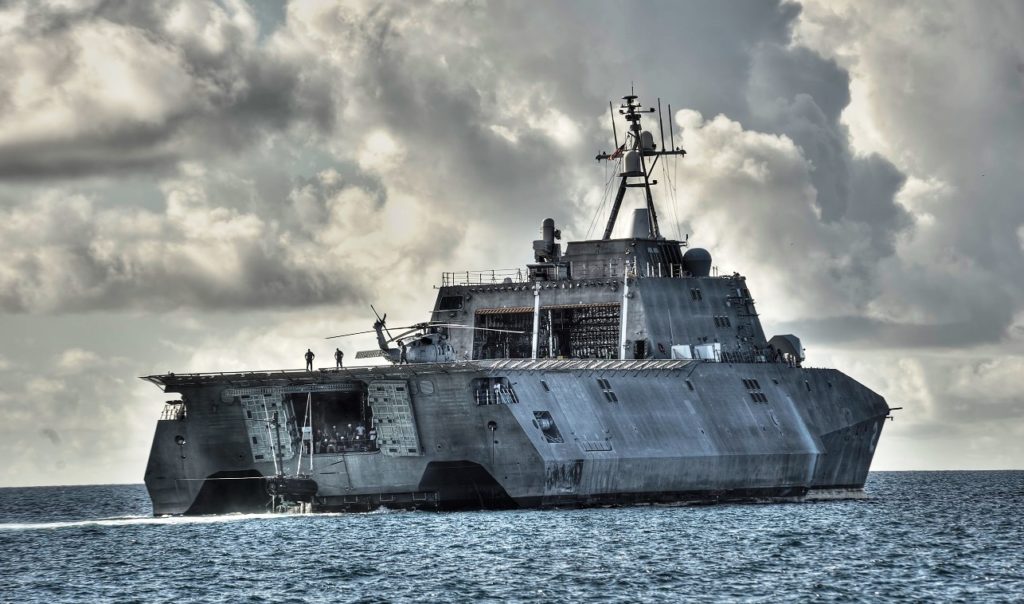
Secretary of the U.S. Navy Ray Mabus announced on Thursday, the next Independence-variant Littoral Combat Ship (LCS) will be named USS Mobile (LCS 26) to recognize the Alabama city’s significant contribution to Navy ship building. “I can’t think of a better way to recognize the superior craft and workmanship Mobilians put into each of these ships,” Mobile Mayor Sandy Stimpson said. “A little piece of Mobile goes into each of the Independence Class LCS ships made right here at Austal, but this ship is especially significant because it marks us as a regionally important U.S. city with global impact and magnificent workers. I have no doubt Austal will produce another incredible warship worthy of the name Mobile that will not only meet the standards of today but will adapt to the evolving needs of the future. “ Stimpson sent a letter to Mabus last year requesting the Navy consider naming a future LCS the USS Mobile as a tribute to the City of Mobile and its citizens “who put their heart and soul into every warship they build.” Alabama 1st District U.S. Bradley Byrne was present for the announcement ceremony Thursday in Washington, D.C.. “Our area takes such pride in building these fine ships, just the latest vessel in Mobile’s long history of shipbuilding,” said Byrne. “I know the spirit and patriotism of Mobile will be encapsulated in this ship.” Byrne continued, “I appreciate Secretary of the Navy Ray Mabus for working with us to make this possible, and I look forward to one day standing in the Mobile waterfront to christen and commission this fine ship.”


